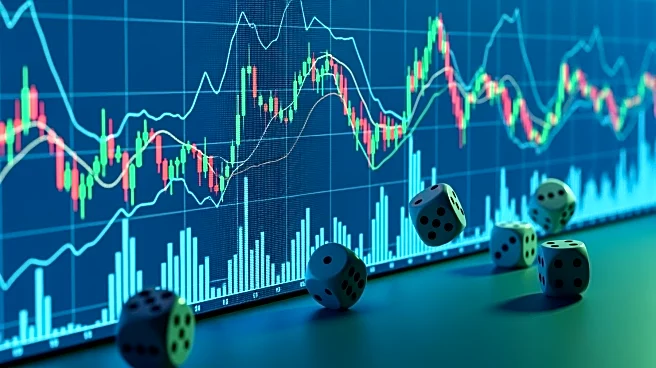What's Happening?
Meme stocks are once again capturing significant attention in the options market, reminiscent of the 2021 trading frenzy involving stocks like GameStop and AMC Entertainment. Recent trading activity has seen stocks such as Beyond Meat and Krispy Kreme
experience substantial option volumes, driven by high short interest and retail investor enthusiasm. This phenomenon is largely fueled by online narratives and social sentiment rather than company fundamentals, with retail traders often betting against institutional investors. The rapid price movements and speculative nature of meme stocks highlight the risks involved, as these stocks can spike and collapse quickly.
Why It's Important?
The resurgence of meme stock trading underscores the influence of retail investors and social media on market dynamics. While it offers opportunities for quick profits, it also poses significant risks due to the volatility and lack of fundamental support for these stocks. The trend reflects a shift in trading behavior, where retail investors challenge institutional norms, potentially leading to market instability. This development could impact investor confidence and market regulation, as authorities may seek to address the speculative nature of such trading activities.
What's Next?
As meme stock trading continues, market participants may need to exercise caution and consider the potential for rapid price reversals. Regulatory bodies might increase scrutiny on trading practices to ensure market stability. Investors should be prepared for heightened volatility and consider the risks associated with trading stocks driven by social sentiment rather than financial fundamentals.
Beyond the Headlines
The meme stock phenomenon raises questions about the ethical implications of trading based on social media influence and the potential for market manipulation. It also highlights the cultural shift in investing, where entertainment and community engagement play a significant role in trading decisions. Long-term, this trend could lead to changes in how markets operate and how investors approach risk management.



















